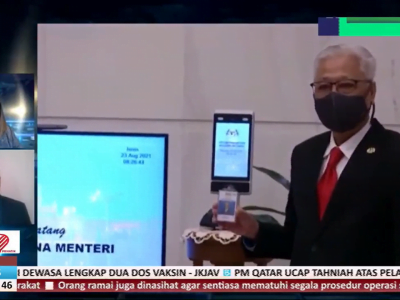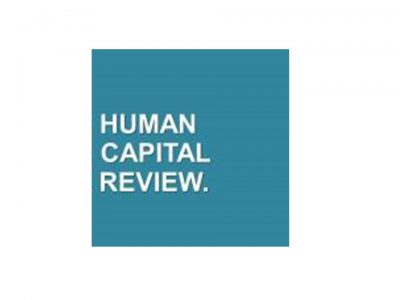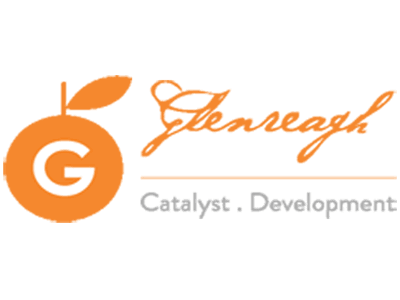A simulation study published in BMC Public Health by researchers of the Tyrolean Health and Life Sciences University UMIT, the Oncotyrol center, the Medical University of Innsbruck and the University of Toronto highlights optimized use of prostate cancer screening.

“Like most medical procedures also screening harbors benefits and risks. This gains increasing attention by the public,” explains Prof. Dr. Uwe Siebert, Chair of the Department of Public Health, Health Services Research and Health Technology Assessment at UMIT and President-Elect of the Society for Medical Decision Making. “A major risk of prostate cancer screening is that of overdiagnosis and overtreatment. This refers to the diagnosis and treatment of clinically irrelevant tumors, which would not cause any complaints during men’s lifetime and remain undetected without screening. Currently, there is no reliable method to distinguish clinically relevant from clinically irrelevant tumors. In consequence, also clinically irrelevant tumors may be treated, which unnecessarily exposes the affected patients to the unfortunately not uncommon long-term treatment complications such as erectile dysfunction, incontinence, bowel dysfunction.”
The simulation model developed by the researchers within a ONCOTYROL research project for personalized medicine simulates the positive and negative effects of screening on the duration and quality of life of screening participants and analyses under which circumstances the potential harms of screening outweigh the potential benefits. Project Coordinator Ass. Prof. Dr. Nikolai Muhlberger summarizes the study findings as follows: “The study results suggest that participation in screening reduces the risk to die from prostate cancer and prolongs the life expectancy of participating men. However, when quality-of-life effects are considered as well, it is shown that primarily men with elevated familial prostate cancer risk benefit from screening, while in men with average prostate cancer risk overall the harms of screening prevail. In addition, the simulation predicts that the benefit of screening in men with elevated familial risk also strongly depends on their individual valuation of treatment-related long-term side-effects.”
 The urological experts in the research team, Prof. Dr. Wolfgang Horninger und Prof. Dr. Helmut Klocker, see the study as an important contribution towards a targeted application of prostate cancer screening. Horninger, the Dean of the Department of Urology at the Medical University of Innsbruck explains: “The study highlights the problem of overdiagnosis and illustrates the dependency of screening benefits on individual risk factors and preferences. Thus, it contributes to the improvement of patient counseling and supports an individual use of screening examinations, which all of us consider as important issues.”
The urological experts in the research team, Prof. Dr. Wolfgang Horninger und Prof. Dr. Helmut Klocker, see the study as an important contribution towards a targeted application of prostate cancer screening. Horninger, the Dean of the Department of Urology at the Medical University of Innsbruck explains: “The study highlights the problem of overdiagnosis and illustrates the dependency of screening benefits on individual risk factors and preferences. Thus, it contributes to the improvement of patient counseling and supports an individual use of screening examinations, which all of us consider as important issues.”
SOURCE UMIT – The Health & Life Sciences University
Services
Stakeholder mapping, analysis, engagement and communication needs to be detailed to avoid business losses or even worse, a crisis. How can you do this effectively to prevent failure? ...
Data-driven business decisions have never been as crucial, especially in this era. MGBF leverages off, technology, experience and market presence to aid businesses in making accurate decisions. ...
MGBF provides comprehensive strategic advice and results-focused solutions to solve clients' problems in business-government relations so they can focus on their core business. ...
A critical business challenge is meeting the right decision-makers and potential buyers through the best channel and platform. How will you improve your business competency? ...
Upcoming Events
In this episode of 'A Working Lunch with Nordin', MGBF's Nordin Abdullah and regional commentator Eddin Khoo will discuss the biggest threats and opportunities for businesses as we look to manage change in the South China Sea.
This MGBF Roundtable will feature thought leaders form Japan, Australia, Singapore and Malaysia dealing with the critical issues of manipulation of public listed companies and government and their financial impacts.
A series of networking sessions with various business associations and trade organisations exploring high-value opportunities for business leaders and entrepreneurs looking to build the relationships that matter.
This integrated event will include a forum, dedicated business matching, site visits, a gala dinner and a round of golf. Aptly themed, the focus will be on regional food security issues and trends in the context of the supply chain, agriculture technology and trade regulations and policies.
MGBF In The News

Planet QEOS and China Machinery Engineering Corporation (CMEC) are interested in investing RM10 billion to co-develop advanced Megawatt peak (MWp) agrovoltaic in Baram, to further boost Sarawak’s green energy initiative and food security. Sarawak Premier Datuk Patinggi Tan Sri Abang Johari Tun Openg was briefed on Friday by both the […]

Last week SPM results came out, 373,974 aspirants who have been waiting patiently over the last few months would now know their fate. Some 10,109 have received all A’s, the golden standard of academic success and the ticket to those looking to study the “more advanced” subjects in university. Proudly, […]

The classic knee-jerk reaction is to say, fire the coach, change the leadership of associations, and reduce the funding till they start performing better. This kind of negative reinforcement may work for kindergarten children, but we are dealing with high-performance adults – individuals much further along in their psychological and […]

Since its earliest tea plantations in 1929, Cameron Highlands has grown to become a key player in the agricultural landscape of Malaysia, producing 40 per cent of all vegetables grown. Despite Malaysia shifting its economic focus away from agriculture, the industry remains imperative for food security and the livelihoods of […]

Although at first glance the travel industry and the agricultural sector appear to have nothing in common, they actually share more than meets the eye. The economic benefits of tourism to the agricultural sector can be multiplied several times over. “Tourism brings the end consumers closer to the source, which […]

The Malaysia Global Business Forum (MGBF) recently held a high-level roundtable themed ‘Designing the Future of the Digital Economy’, attended by industry leaders and business associations. The guest of honour was Yang Berhormat Syerleena Abdul Rashid, the Member of Parliament (MP) for Bukit Bendera in Penang. The MP’s Special Session […]

The Malaysia Global Business Forum (MGBF) will be hosting a roundtable on ‘Designing the Future of the Digital Economy’ on 23 February 2023. It is the culmination of the first three MGBF Exclusive Roundtable Series titled ‘The Evolving Threat Matrix in the Digital Economy’ held throughout 2022. According to the […]

The Founding Chairman of the Malaysia Global Business Forum (MGBF), Nordin Abdullah, today spoke on Bernama TV’s leading English talk show, The Brief, hosted by Jessy Chahal, on the topic of a stable political reality and what that means for the Malaysian economy. Nordin said, “The first thing that it […]

More than 1,100 years ago, Muhammad ibn Musa al-Khwarizmi was developing the mathematical formulas that we know today as algorithms which now have become so intertwined with the business fortunes of global media giants and the very fabric of geopolitics. A series of recent high level international reports have revealed […]

KSK Land has been recognised by the Malaysia Global Business Forum (MGBF) for its role in attracting high net-worth individuals to Malaysia post-pandemic. The first challenge in investor attraction is “selling” the country. In the context of Asia, Malaysia is competing with some very established investment destinations. The second […]

Malaysia, in particular Kuala Lumpur, continues to position itself as a regional centre to do business, educate a family and enjoy a global lifestyle. One company, KSK Land, has taken the lead in positioning itself and the city of Kuala Lumpur as a property investment destination for the global citizen […]

The upcoming budget represents an opportunity to build resilience in the critical sectors that will form the backbone of the country’s future-facing economic ambitions. This however needs to be achieved in the context of managing the community sectors most impacted by COVID-19 over the past two years. The Keluarga Malaysia (Malaysian Family) […]

Malaysia Global Business Forum (MGBF) has moved to support the creative economy as the overall economy moves into a recovery phase following the COVID19 pandemic. As a step in the direction of normalcy, the MGBF has agreed to host the art exhibition “I Know You’re Somewhere So Far” by one […]

Congratulations to Datuk Seri Ismail Sabri Yaakob for taking up the mantle of the ninth prime minister of Malaysia. There is nothing normal about the situation; it could not have been scripted but it has kept the spectrum of media, mainstream and social, gripped. The first order of business for […]

In a stirring speech to the nation, President Joseph R. Biden, Jr. stamped his brand of leadership on the presidency, in his first act as the 46th president of the United State of America, it signaled several shifts. Perhaps the weather was foreboding with snow falling before the ceremony that […]

KUALA LUMPUR, 6 July 2022 – As the global economy continues to deal with unprecedented levels of disruption caused by the pandemic and the conflict between Russia and Ukraine, the convergence of energy security and food security issues has become a front-of-mind issue faced by policy makers and consumers alike. […]

KUALA LUMPUR, 23 June 2022 — Malaysia Global Business Forum (MGBF) ties up with scoutAsia to ensure that businesses are equipped with deeper regional insights. The past two years has seen a massive shift in the way businesses are conducted with digitisation, digitalisation and automation continuously being adopted to improve […]

KUALA LUMPUR, 25 May 2022 – The Malaysia Global Business Forum (MGBF)’s exclusive roundtable on ‘Security Concerns in Critical Value Chains’ was held in a hybrid setting yesterday at the Eastin Hotel Kuala Lumpur. The guest of honour was Yang Berbahagia Tan Sri Dato’ Seri Rafidah Aziz, former minister of […]

We live in the age of crisis. At the heart of any crisis is the threat of rapid change. Change too deep or too wide that the current coping mechanisms for an individual, corporation or government are unable to remain resilient. An unwelcome paradigm shift, like the proverbial spider, that […]
 The urological experts in the research team, Prof. Dr. Wolfgang Horninger und Prof. Dr. Helmut Klocker, see the study as an important contribution towards a targeted application of prostate cancer screening. Horninger, the Dean of the Department of Urology at the Medical University of Innsbruck explains: “The study highlights the problem of overdiagnosis and illustrates the dependency of screening benefits on individual risk factors and preferences. Thus, it contributes to the improvement of patient counseling and supports an individual use of screening examinations, which all of us consider as important issues.”
The urological experts in the research team, Prof. Dr. Wolfgang Horninger und Prof. Dr. Helmut Klocker, see the study as an important contribution towards a targeted application of prostate cancer screening. Horninger, the Dean of the Department of Urology at the Medical University of Innsbruck explains: “The study highlights the problem of overdiagnosis and illustrates the dependency of screening benefits on individual risk factors and preferences. Thus, it contributes to the improvement of patient counseling and supports an individual use of screening examinations, which all of us consider as important issues.”


































